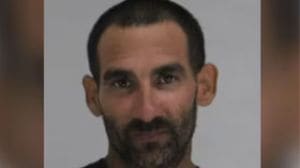Why I feel cheated by the girlhood I subscribed to
It’s disquieting to see your childhood icons recontextualised as case studies. Piper Rockelle’s story is an embodiment of a system that flattens children into commodities.
 Growing up has taught me that there is value in being allowed to exist offscreen. (Photo credits: Piper Rockelle/Created on Canva)
Growing up has taught me that there is value in being allowed to exist offscreen. (Photo credits: Piper Rockelle/Created on Canva)I grew up with Piper Rockelle. Not in the literal sense, of course, but through a screen that felt intimate enough to blur the difference. When I was 10, I would wait for her YouTube uploads with the same anticipation other children might reserve for birthdays. She was confident, endlessly energetic, and always surrounded by friends. Her world shimmered with the kind of manufactured perfection that made girlhood look like a dream you could subscribe to. I didn’t see production schedules or brand strategy. I saw a girl who had figured out how to be loved at scale.
Back then, it didn’t occur to me that this was work. Or that the authenticity I admired was being carefully curated by adults who understood its market value. I didn’t wonder what it meant to live under the constant gaze of a camera.
Now, it feels different.
I have found myself returning, reluctantly, to the content I once consumed without hesitation. Some of it I outgrew naturally. Some of it I have been forced to confront. Case in point, the Netflix documentary Bad Influence: The Dark Side of Kidfluencing. The series follows Piper’s rise as a child influencer and the subsequent legal battle that unfolded after former collaborators accused her “momager”, Tiffany Smith, of emotional manipulation, unsafe environments, and — most disturbingly — sexual misconduct.
The allegations emerged in 2022, igniting a lengthy legal battle that culminated in a $1.85 million settlement in 2024. However, the docuseries, which was released earlier this year, reignited the conversation, raising questions that had remained unanswered in court. Piper and her mom do not feature in the documentary, but have denied the allegations. In a Rolling Stones interview, Piper, now 17, details how YouTube demonetised her account and brand deals dried out after the lawsuit. She has chosen to move on, continuing to post on social media, including TikTok, Instagram and BrandArmy, a subscription-based platform that works similarly to OnlyFans. Though BrandArmy does not allow nudity and requires parents to manage minors’ accounts, the platform has come under scrutiny for being unsafe for children.
It’s disquieting, at the very least, to see your childhood icons recontextualised as case studies. Piper’s story, as outlined in the film, is no longer about a precocious girl who found early success. It is an embodiment of a system that flattens children into commodities.
The energy that once appeared spontaneous was revealed to be orchestrated, and the affection among friends rehearsed. What was once comforting now leaves a peculiar aftertaste, like something organic that’s been overprocessed beyond recognition.
Piper wasn’t the only one. I also spent much of my early years consuming the content of SevenSuperGirls, a YouTube channel that assigned a different girl to post content each day of the week. The channel was part of a larger tween brand, Seven Awesome Kids. At its peak, the group attracted millions of subscribers, most of them children like me, across its seven channels. The premise was simple, and the tone always cheerful—bedroom vlogs, school routines, comedy skits. However, the picture off-camera turned out to be painfully different. In 2018, one of the franchise owners, Ian Rylett, was arrested and later convicted for coercing one of the girls into undressing on camera. Former member Kaelyn Wilkins has since described a culture of control and silence, where young girls were obligated to follow invasive rules under the threat of being cut off from the platform that had become their lives.
It’s difficult to describe how it feels to look back on these videos now. I remember them vividly, yet I find myself almost unable to watch them anymore. It’s sickening to know that what once made me feel connected and seen was built on unsafe and unfair conditions.
This realisation hasn’t made me cynical. It has made me more cautious, more aware of what is left out of frame. Child influencers are often praised for their confidence, their maturity, and their ability to command audiences. But what they rarely receive is protection. Their work takes place in bedrooms and kitchens, on couches and car rides. Their lives are their content, and their families, oftentimes, are their managers. There are few legal protections in place, and fewer still that account for the emotional toll.
For a long time, I thought visibility meant success. But growing up has taught me something else: there is strength in privacy. There is value in being allowed to exist offscreen. And perhaps the greatest tragedy of all is that so many children who grew up online were never given that choice.
The writer is a student in Mumbai.
Photos




- 01
- 02
- 03
- 04
- 05



























